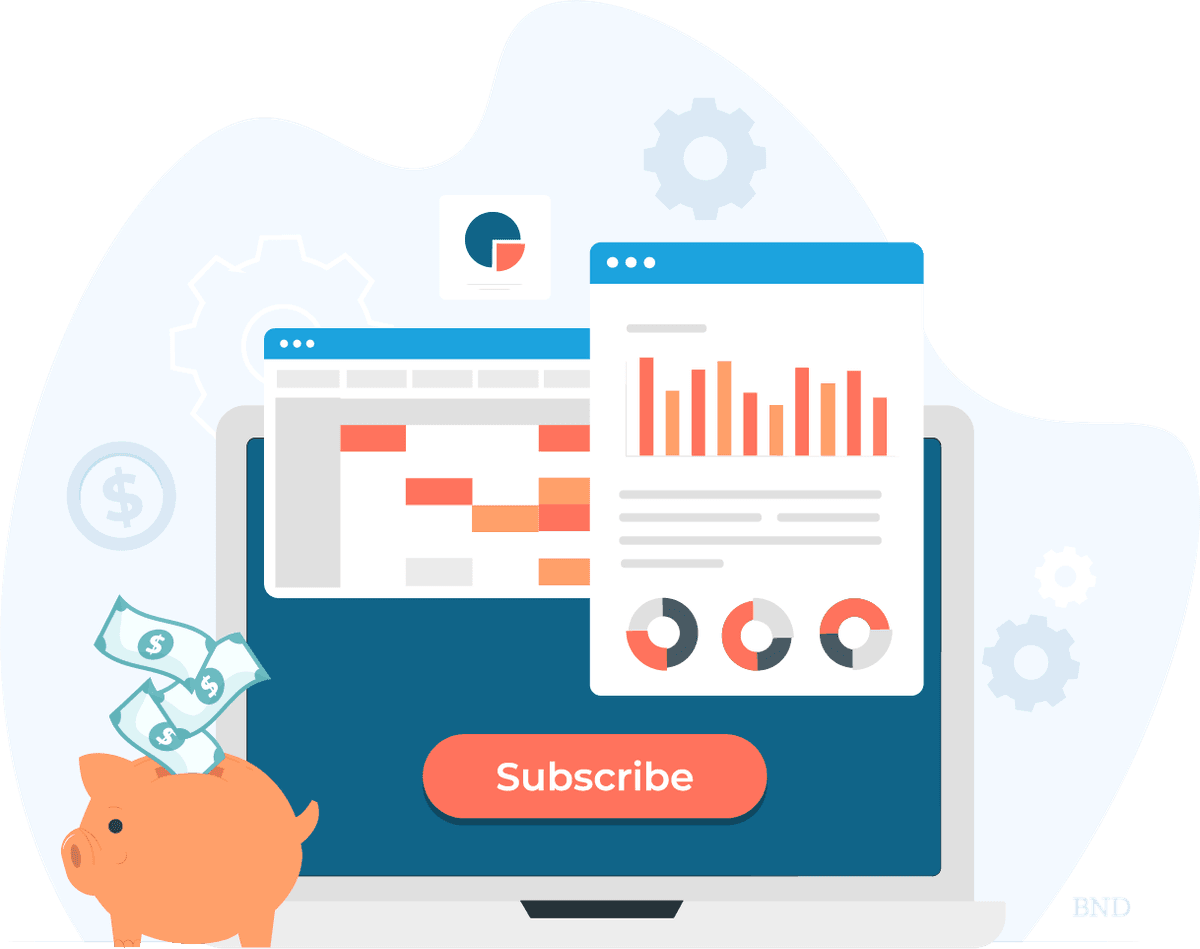Business News Daily provides resources, advice and product reviews to drive business growth. Our mission is to equip business owners with the knowledge and confidence to make informed decisions. As part of that, we recommend products and services for their success.
We collaborate with business-to-business vendors, connecting them with potential buyers. In some cases, we earn commissions when sales are made through our referrals. These financial relationships support our content but do not dictate our recommendations. Our editorial team independently evaluates products based on thousands of hours of research. We are committed to providing trustworthy advice for businesses. Learn more about our full process and see who our partners are here.
Choosing CRM Software: A Buyer’s Guide

Table of Contents
Customer relationship management (CRM) software originally was designed to help businesses build and maintain relationships with new and existing customers. Since then, CRM software has evolved from a simple contact management system into a robust tool that helps users manage sales, marketing, point-of-sale transactions, accounting, vendors and other types of operational data all in one easily accessible solution.
From a growth standpoint, CRM helps you find leads, follow up with prospects and nurture them through the sales pipeline. CRM is also used to maintain customer loyalty by storing key information to boost sales ― for instance, by personalizing the experience and providing excellent customer support.
This guide will help you choose the right CRM software for your business. If you already know what you need and just want to see our recommendations for the best CRM software, visit our best picks page.
How to choose CRM software
When you’re researching which CRM systems are best for your business, you should take your time to compare several options. This step-by-step checklist can help you ensure you make the best choice for your workflow and team.
1. Determine your budget.
CRM costs vary quite a bit, ranging from free tools to those that cost $1,000 per month. Understand your budget before you begin researching the market so you can narrow down your choices quickly. Identify the CRM software outside your price range before you drill down into feature sets and service plans so you don’t waste your time only to find out you can’t afford some of the options you’ve considered.
2. Consider the features you need most.
Create a short list of the CRM features you must have. Understanding what you need can help you identify any software that’s just too limited. You should also consider a second tier of features that would be nice to have but aren’t crucial. During this process, gather feedback from your team about what they need ― remember, they’ll be using the CRM software so it should meet their expectations.
3. Gather feedback from similar businesses.
If you have relationships with other businesses that are similar to yours or have similar needs, ask them about the CRM software they chose. See if they’re willing to share information about why they made the decisions they did and whether they’re happy with their platform. This insight may help you determine whether your shortlist includes the best providers available.
4. Research the CRM space.
CRM platforms are evolving all the time as technology improves, so make sure you’re up to date on which vendors are keeping up with the cutting edge of the technology and which are falling behind. Consider the types of integrations CRM platforms provide with other business software you may already be using.
5. Check out review websites and customer reviews.
Business websites that review software (like this one) and customer reviews can provide much-needed insight into how well a CRM platform does what it claims to do. Spend some time reading these reviews from multiple sources around the internet. Of course, it’s important to take these reviews with a grain of salt, as not everyone has the same experience. But if you can identify common themes across multiple reviews, there’s a good chance it’s valid feedback.
6. Schedule demos and free trials.
With a strongly vetted shortlist in hand, it’s time to dive in and see for yourself. Reach out to the companies you’re still considering to set up demo sessions to see the software in action and ask representatives any questions you might have. Many will offer free trials as well, so you can take the software for a test spin. Invite any members of your team who might be interested to participate so they can get a sense of the tools too and offer their feedback.
At the end of this process, it should be pretty clear which CRM software is going to be the best fit for your team. At the very least, your list should be narrowed down to a few solid options that will suit you well.
How much does CRM software cost?

The cost of CRM software varies greatly. Vendors typically use a subscription-based pricing model. Pricing depends on several factors, such as the number of users and the types of features available.
Generally, you pay a set per-user, per-month fee. Some vendors charge a flat monthly fee for a set number of users, but you may find that to support the number of users you need (and the features you want), you’ll need to buy a more expensive plan or there can be additional fees for things like additional users. Pricing can range from $10 per user, per month, to thousands of dollars per month, depending on your business’s needs.
Don’t have a budget for CRM software? Maybe you’re not sure that CRM software is right for your business, but you’re curious to see what it has to offer. Many vendors offer free trials of their software. There are also free versions of popular CRM software; some are full-featured but limit the number of users or records, while others offer only the bare minimum capabilities.
What features should you look for in CRM software?
CRM doesn’t just keep your contacts organized ― it offers a bevy of tools to help you boost sales and execute more effective marketing campaigns. Here’s more about the features CRM software offers small businesses:
- Lead management and sales: Find new customers by automatically generating leads from various sources like social media, website visitors, inbound calls, newsletter sign-ups and more. Follow up with leads automatically with preset emails and tasks or contact them directly yourself. CRM can nurture prospects through the sales pipeline, from lead generation to closing the sale. Additionally, many CRMs allow users to create and store sales quotes and track invoices.
- Marketing: Many CRM solutions have built-in marketing tools, including email templates, email marketing pipelines, SMS messaging and lightweight project management tools. Some even offer competition tracking and sales forecasting capabilities.
- E-commerce: Some high-level CRM software has built-in e-commerce functionality, while other products allow for easy e-commerce integration, either by accessing the application programming interface (API) or by using a third-party service.
- Reports/dashboards: Most CRM software includes some reporting functionality and many of the higher-end products sport live, dynamic dashboards. Make sure any exporting or importing needs you have (for instance, transferring information to and from Excel or QuickBooks) are compatible with the system you choose.
- Call center: Most low-cost CRM products do not have call center capabilities, but there are third-party integrations available to link call center software with CRM software. However, if a call center is central to your business, it may be worthwhile to adopt a CRM with full call center features. [Related story: Best Call Centers and Answering Services for Businesses]
- Workflows/approvals. Project management is an important aspect of any CRM. Most high-quality CRMs have built-in workflows and checkmark-style approvals that help with task management and organization. However, the extent to which these project management tools are customizable varies from product to product, so if you require a specific workflow step or approval process, make sure it is achievable with the application you choose.
Are you ready to choose a CRM solution? Here’s a breakdown of our full coverage:
Questions to ask when considering CRM software

There are many different types of CRM software available, so choosing the right one is key to making it work for your business. Here’s what small business owners advise asking potential vendors:
- Is it built for small businesses?
- What is the implementation process like and how much technical assistance is included?
- How easy is it to use? Can I train employees easily?
- Are there any user minimums?
- How easy is it to integrate with other solutions I already use?
- What is the total cost of the software? Are there any setup or additional fees? What if I need to add more users or integrations?
- Is the API accessible?
- What type of security features are built into the application?
Best CRM software for small businesses
- Salesforce CRM: Our Salesforce review analyzes one of the leading CRM platforms in the space. If your small business is looking for a premier tool that you can grow with, Salesforce might be the right choice for you.
- Sage CRM: Our Sage CRM review covers a solution that helps businesses build a lasting relationship with customers, even after they buy. If you’re looking to boost customer satisfaction and drive repeat business, consider this platform.
- Keap: Our Keap review found this platform to be incredibly easy to use and helpful in automating sales and marketing tasks. If you want to take repetitive tasks off your employees’ plates, Keap may be able to help.
- monday Sales CRM: Our monday Sales CRM review covers a tool that helps connect client communications to project management seamlessly. You can use the CRM data you capture to get straight to work and keep your customers informed about your progress.
Choosing the right CRM software saves time and money
A CRM platform is an important sales and marketing tool that can improve your ability to generate and nurture leads and find customers. Making the wrong choice, though, can be time-intensive and expensive. By following the checklist and tips above, you can ensure you pick the right platform the first time, helping your business to grow and avoiding some serious expenses.





